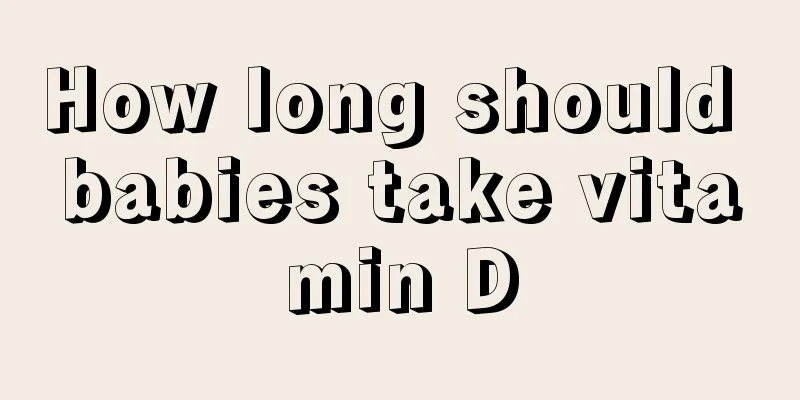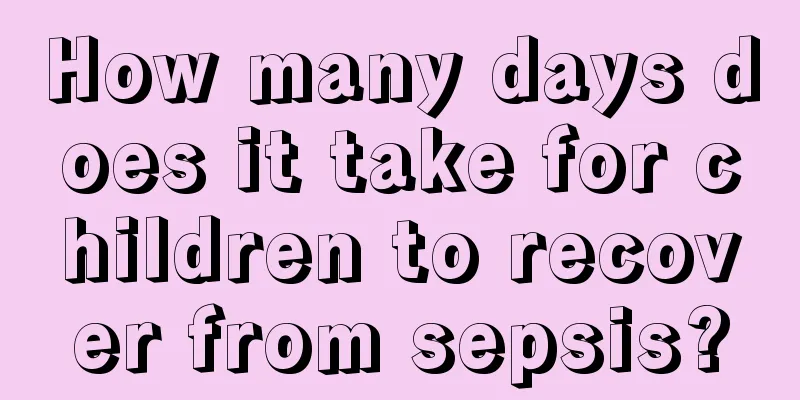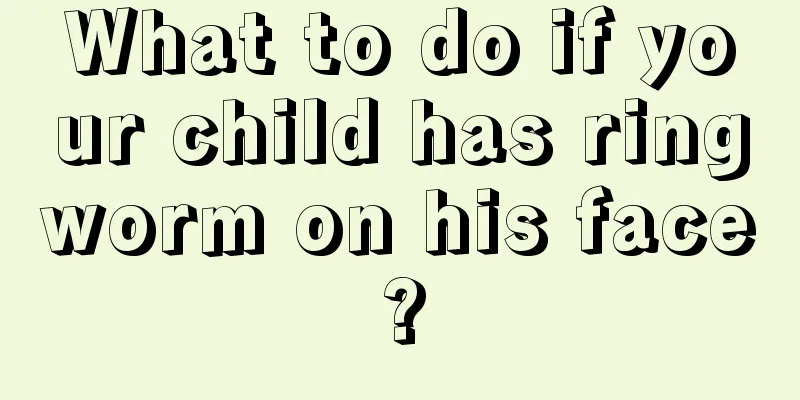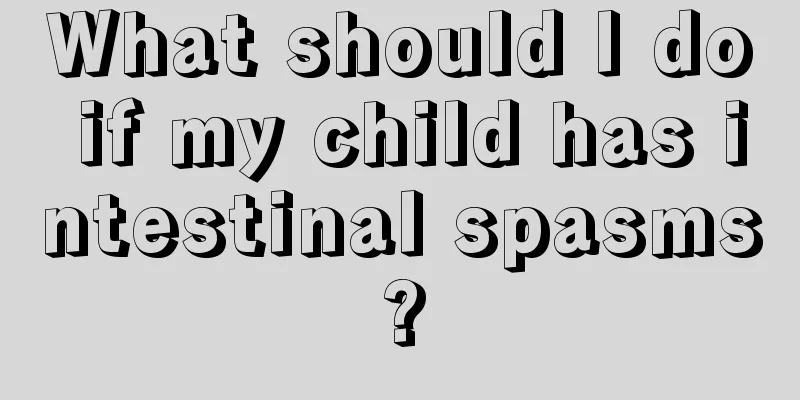Babies cry when they fart

|
In the early stages of development, babies' various functions are not yet fully developed, so they may have a variety of health problems. For example, many babies have to use a lot of effort to fart, and they also cry. This may indicate that the baby has certain health problems, such as underdeveloped abdominal wall muscles, incomplete gastrointestinal development, or intestinal tortuosity. 1. Underdeveloped abdominal wall muscles Specific analysis: 1. Infants will use the gas accumulated in their internal organs to promote the excretion of stool. However, since the muscles of the abdominal wall are not yet developed, abdominal pressure cannot be generated without holding your breath, so it looks very painful. 2. As a result, the child's face will turn red, and his hands will be clenched tightly, making it difficult for him to fart. Looking at it from another perspective, babies are exercising their muscles in this way, which is also very beneficial. Suggestion: At this time, if the baby is in great pain, parents can gently massage the baby's abdomen clockwise to help the baby expel gas. 2. Imperfect gastrointestinal development Specific analysis: 1. Babies in infancy have immature gastrointestinal development and uncoordinated intestinal peristalsis, which can easily lead to intestinal bloating and flatulence; 2. There will also be frequent crying and difficulty in farting, which is medically called infantile colic. suggestion: 1. Keep the baby in a comfortable position as much as possible to help the child pass gas smoothly. If the situation is more serious, you can take some drugs to improve gastrointestinal motility. 2. If you find that your baby's colic is difficult to relieve, you should consider whether your baby is allergic to milk protein. 3. The intestine is curved and difficult to discharge Why do babies cry when they fart? The curved intestines make it difficult for gas to be discharged, and sometimes frequent crying may not result in successful gas discharge. Specific analysis: 1. This is a normal phenomenon. This is a long fart. The face will turn red, and the hands and feet will be clenched tightly. Sometimes, farting will also bring out feces. 2. Because the baby's intestines are smooth and straight when sleeping, so it is easy to fart; when being held, the baby is like curled up, and the intestines have more bends, so it takes more effort to fart. Recommendation: It is recommended that parents lay the baby flat on the bed and perform abdominal massage to help the baby fart. |
<<: What should I do if my child vomits repeatedly?
>>: What to do if pus comes out of the baby's belly button
Recommend
Does a child grow taller when he has a fever?
It is generally believed that fever is a disease ...
What to eat for children is good for their stomach
In daily life, children are prone to indigestion ...
How to solve children's rotten feet
Children's sore feet may be caused by tinea p...
Baby's mouth has fleshy protrusions on both sides
There are protruding fleshy areas on both sides o...
Reasons for loose stools in newborns
For breastfed babies, the stools are yellow or go...
What should I do if my child’s nose is blocked at night?
If a child has a stuffy nose at night, he will de...
What to do if your baby's lips peel
Whenever the weather gets dry in autumn and winte...
What should I pay attention to when my baby is two months old?
The baby's body is very fragile, so during th...
What is the cause of swollen abdominal lymph nodes in children?
Abdominal lymphadenopathy is a common disease in ...
What to do if your one-year-old baby has allergies
Babies generally have low immunity, so parents mu...
How to prevent children from hunching over?
Many parents will find that their babies always s...
Swollen lymph nodes in the baby's neck
For children, since their bodies are more fragile...
What is the reason why a four-month-old baby cannot sleep well?
Generally, babies often have trouble sleeping whe...
Is it difficult for your baby to stop breastfeeding? That's because you didn't use the right method.
When it comes to weaning babies, almost every new...
What are the symptoms of foreskin inflammation in children?
Many parents know that it is not good for their c...









